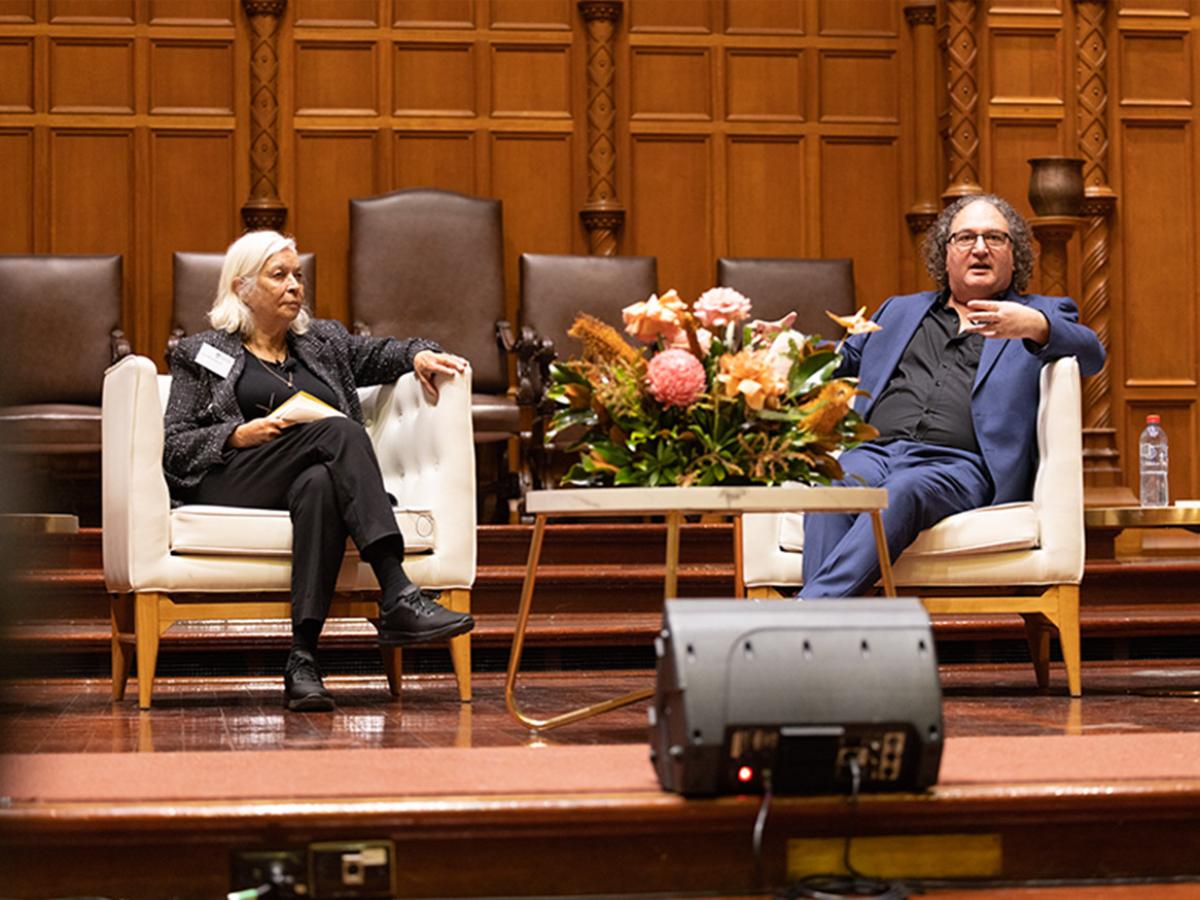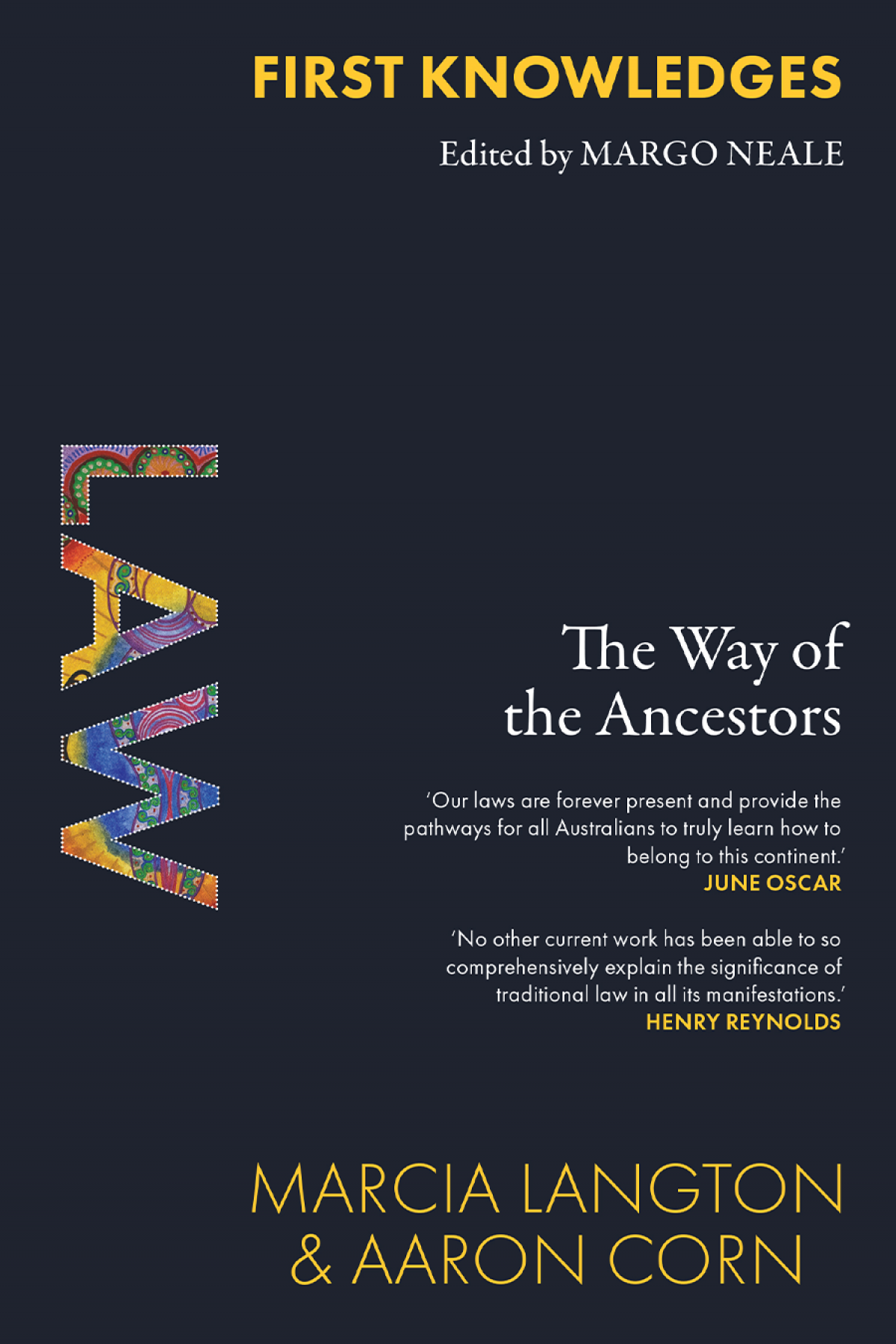Law: The Way of the Ancestors
A review of Marcia Langton and Aaron Corn’s book on Indigenous Law, launched at the University of Adelaide in May.

Law. The Way of the Ancestors is a powerful testament to the enduring laws that have governed life in this country for millennia.
It also shows the limitations of the imposed laws that have attempted to usurp all that existed before and govern this country in contravention of the laws of the land and her people.
These two systems now must find ways of working together for all Australians.
Law is a timely call to action with its well-argued recognition of Indigenous law as being fundamental to Australian nationhood, offering us the gift of exchange and a social contract for a unified future.
It traces the laws of the ancestors, reveals many profound differences between Indigenous and Western laws, and makes plain the absolute necessity of the inclusion of Indigenous law in the modern laws of this country.
One truth revealed here is the law’s deep connectivity to every conceivable aspect of life across time, space and place, as a consequence of being a system of law that was created by the ancestors, or creator beings, and not by mere mortals. Aboriginal law is written in the land. It is as ancient as it is permanent.
A vital difference pointed out is that the Aboriginal definition of ‘law’ equally includes culture. Law and culture are inseparable. And country holds all knowledge as an integrated whole, not compartmentalised into separate disciplines.
Another profound revelation is the notion that traditional knowledges and law systems are as alive and well today as they were yesterday. They permeate all aspects of people’s lives, whether people recognise it or not. The ancestors’ laws are present and active daily.
Law is fundamental to everything we see and experience and is all around us – whether in a public mural, a Welcome to Country, a smoking ceremony, announcements by media presenters and airline attendants acknowledging Country, an Aboriginal design on a brochure or T-shirt, or a performance by Bangarra Dance Theatre.
All are governed by law and must be sanctioned by the right people, for the right reasons, according to law.
Law is practised in ceremonies in many different forms today. This is evident in festivals such as Garma in north-east Arnhem Land and Milpirri at Lajamanu in the Tanami Desert, in the music of Yothu Yindi, in the teachings of Steven Wantarri ‘Wanta’ Jampijinpa Pawu from Lajamanu, and in the art of Brisbane-based Jennifer Herd.
Constant negotiations between Aboriginal and Torres Strait Islander people and modern governments on native title, treaty, constitutional recognition and water rights, and with mining companies, are further evidence of the presence and principle of Aboriginal law.
As with other books in this series, we have opted for co authorship to offer a broader range of perspectives and knowledge from different cultural backgrounds, lived experiences and research.

Margo Neale is the editor of the First Knowledges series of books, published by Thames and Hudson Australia. This series offers an introduction to Indigenous knowledge in vital areas, and their application to the present day and the future.
Authors, Professor Aaron Corn and Professor Marcia Langton AO, both senior academics at the University of Melbourne, chose to launch Law: The Way of the Ancestors at the University of Adelaide due to Professor Corn’s role, prior to joining the University of Melbourne, as Director of our University’s Centre for Aboriginal Studies in Music (CASM). It was fitting that a VIP event, before the official launch in Bonython Hall, occurred at the CASM 50th anniversary exhibition “Let our Songs Speak for Us” curated in the Barr Smith Library’s Ira Raymond Room.
If you are a member of the University of Adelaide community who has recently published a book, please let us know: lumen@adelaide.edu.au
Story by Margo Neale
